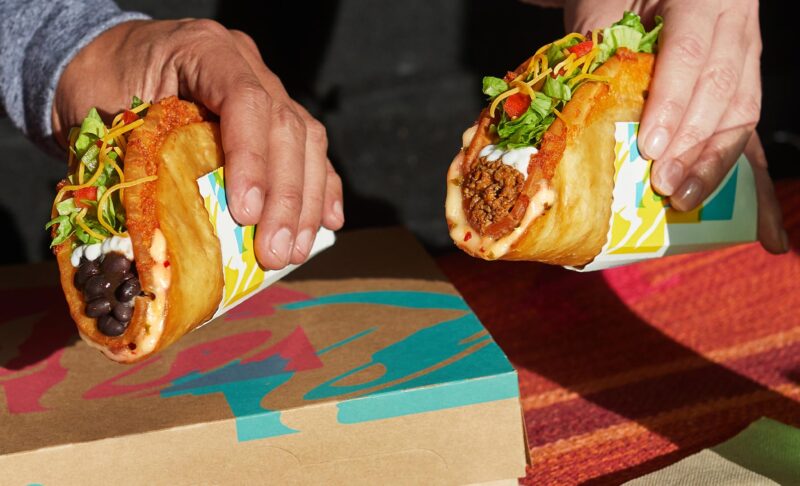The Quesalupa is part quesadilla, part chalupa and it’s coming back to Taco Bell with 50 percent more cheese.
After years of perfecting the recipe, the geniuses behind Taco Bell’s test kitchen are finally bringing it back. During its debut, the Quesalupa wowed cheese lovers everywhere and was one of the brand’s biggest limited-time offers in history. Now it’s back, and more craveable than ever, with 50 percent more cheese inside its famous double-layered shell.
The journey of transforming a chalupa to Quesalupa starts with stuffing the famously crispy chalupa shell with a blend of melted pepper jack and mozzarella cheeses from edge-to-edge — the recipe for an epicly cheesy experience. Inside are Taco Bell’s signature flavors including seasoned beef, crispy lettuce, shredded cheddar cheese, fresh diced tomatoes and cool reduced fat sour cream.
“Behind the scenes in our Test Kitchen, my team is constantly hard at work ideating on how to enhance the food experience for our guests,” said Liz Matthews, Taco Bell’s Global Chief Food Innovation Officer. “Our customers raved about the cheese filled Chalupa shell in its first debut, so when the Quesalupa began its return journey back to our nationwide menus, we knew we needed to perfect that cheesy experience – one that will be consistent for every guest and every bite.”
The item broke ground as one of Taco Bell’s most influential tests in the company’s history during its initial 36-restaurant rollout in Toledo, OH in 2015. In 2016 it became available nationwide, marking the first time in Taco Bell history that a Quesadilla and Chalupa had come together–the hype was real. After years of perfecting the shell’s cheesy experience, the fan-favorite menu item began its journey back to menus nationwide with a test last September in Knoxville, Tennessee.
